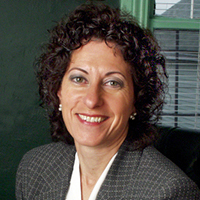Adjudicating Sexual Misconduct on Campus: Title IX and Due Process in Uncertain Times
A Roger Williams University School of Law Symposium - Sponsored by the Roger Williams University Law Review
8:30 AM Registration
9:00 AM Welcome & Opening Remarks
Register Today!
LAST DAY to register is Wednesday, November 13, 2019.
RWU Law - Bristol Campus
One of the most controversial topics on college campuses is how to handle allegations of sexual misconduct under Title IX of the Education Amendments Act of 1972, a federal law that prohibits discrimination based on sex in educational programs. Since its enactment, the scope of Title IX has been expanded to include protections against sexual harassment and sexual misconduct. The law in this important area is very much in flux.
In 2011, the Obama administration issued a “Dear Colleague Letter,” which presented guidelines for educational institutions adjudicating sexual misconduct on campus. In response to the letter, colleges and universities implemented policies and procedures that attempt to adequately balance the rights of students who report misconduct and the due process rights of the accused. Although investigations and hearings occur outside of the criminal justice system, the consequences for both parties can be severe in both personal and professional terms. In the view of some critics, many procedures enacted in response to the 2011 “Dear Colleague Letter” tipped the scales in favor of complaining parties and failed to adequately protect the rights of the accused.
In 2017, the Trump administration repealed the “Dear Colleague Letter” and, in 2018, proposed new rules that would significantly change the legal obligations of educational institutions. Some notable aspects of the proposed rules include the right to cross-examination, an increased evidentiary burden, and a bar to schools having jurisdiction over claims of misconduct that arise from off-campus behavior. The Trump administration views these proposed rules as better calibrating the balance between the rights of complaining parties and those of the accused. Critics of these proposed regulations view them as a rollback of progress gained that will result in harm to those who report instances of sexual misconduct.
This symposium will explore the Title IX legal landscape and the anticipated implications of the Trump administration’s proposed regulations. Panel discussions will touch on legal developments surrounding Title IX, due process concerns, and the issue of consent on campus. Each panel will be composed of practitioners and professionals who will provide diverse perspectives on the myriad issues surrounding Title IX.
Keynote Speaker

Nancy Chi Cantalupo is an Associate Professor at Barry University School of Law. Her past positions include Associate Vice President for Equity, Inclusion & Violence Prevention at a higher education professional association (NASPA); an Assistant Dean at Georgetown Law; and an attorney with Drinker Biddle & Reath LLP. Her scholarship focuses on the use of law to combat discriminatory violence, particularly gender-based violence, and includes: publications in the Yale Law Journal Forum, Maryland Law Review, and the peer-reviewed social science journal Trauma, Violence & Abuse; coauthored studies in the California Law Review Online, U.C. Davis Law Review, and Utah Law Review; forthcoming articles in the Wake Forest Law Review and Harvard Journal of Law and Gender; and opeds for the New York Times, Time, USA Today, and Washington Post.
Professor Cantalupo has worked to combat gender-based violence in education for nearly 25 years as a researcher, campus administrator, student activist, victims’ advocate, attorney, and policymaker. Her past and present pro bono work includes consultations with President Obama’s White House Task Force to Protect Students from Sexual Assault, participation on a U.S. Senate roundtable, service as a Negotiator on the Negotiated Rulemaking Committee that amended regulations for the Clery Act, and testimony before the Maryland and Virginia state legislatures. Recently she has filed both solely-authored and coauthored comments in federal proceedings related to Title IX, was asked by the American Bar Association’s Commission on Domestic and Sexual Violence to write Recommendations for Practice for investigations of campus dating, domestic, sexual and stalking violence, and co-authored “Title IX & the Preponderance of the Evidence: A White Paper,” signed by over 100 law professors from across the country. She serves or has served on the Boards for the Asian/Pacific-Islander Domestic Violence Resource Project and the Conference of Asian Pacific American Law Faculty.
Panel 1:Title IX: Where are we now?

Claire K. Hall, J.D. is a national expert who has trained thousands of faculty, staff and students at colleges and universities across the country on a multitude of higher education compliance related topics. Claire is also the Owner of UECAT, LLC, where her work focuses on providing compliance, training, investigation and consulting services for colleges and universities. Prior to founding UECAT, Claire spent many years working at a large private university, where she served as the Assistant General Counsel and Special Advisor to Student Services and also managed the institution’s Title IX grievance process. Claire holds a Juris Doctorate from Tulane University Law School, a Master’s in Communication from Emerson College and a Bachelor of Arts in Journalism from the University of Rhode Island.

Amanda Walsh, Esq., is a Senior Attorney at the Victim Rights Law Center. Amanda returned to the VRLC in January 2017 as an Education Program Senior Attorney. In this role, Amanda provides training and technical assistance to colleges and universities through the Office on Violence Against Women campus grant program. From 2011-2015, Amanda was a VRLC staff attorney, focusing primarily on the representation of students in both K-12 and higher education settings. She also trained colleges and universities nationally on Title IX and campus sexual assault response. Before returning to the VRLC, Amanda was the Title IX Program Officer at Brown University. She was responsible for implementing Brown’s sexual and gender-based harassment and violence policy and complaint procedures, building Brown’s flagship Title IX Office, and overseeing all related complaint investigations. Amanda is a graduate of Northeastern University and Roger Williams University School of Law.

Jen Stanley is the Associate Dean and Title IX Coordinator at Roger Williams University. During her time at RWU, she has been a member of a variety of campus initiatives and task force groups. Jen currently oversees the Green Dot Bystander Intervention efforts, chairs the Title IX Task Force, and co-chairs the Diversity & Inclusion Climate and Intergroup Relations subcommittee.
Jen has been a member of the National Association of Student Personnel Administrators (NASPA) regional advisory board since 2000 and currently serves as the regional Knowledge Community Coordinator. Jen also serves on the national board of directors of The Silent Witness Initiative, a volunteer organization addressing issues of relationship violence, specifically working with college students around the globe in an effort to make campuses safe for all students. She represents RWU as a member of the Rhode Island Cross-Campus Learning Collaborative for Sexual Violence Prevention.

Lynette Labinger is an attorney in private practice in Providence, Rhode Island with a litigation practice concentrating in civil and constitutional rights and employment discrimination law. She first came to Rhode Island in 1974 after completing law school to clerk for Judge Raymond J. Pettine of the federal district court.
Labinger is a Fellow of the American College of Trial Lawyers and has been recognized as a New England “Super Lawyer” each year since 2007, and featured in its 2010 edition for her contributions to civil rights advocacy. In 2010, the RI Commission on Women named Labinger their “Woman of the Year/Advocacy.” In June 2018, she was honored by Rhode Island Legal Services with its “Equal Justice Award” and in October 2019 will be one of the honorees for the Houston Memorial Award of Justice Assistance of Rhode Island.
Labinger served as lead trial and appellate counsel for the plaintiff class in the landmark Title IX sex discrimination case challenging the treatment of women athletes at Brown University (Cohen v. Brown University). She is also a long-time cooperating attorney for the American Civil Liberties Union of RI, which has twice honored her with its Civil Libertarian of the Year Award. Labinger has litigated many high profile civil rights cases in Rhode Island, including cases involving reproductive rights and First Amendment rights, representing a teenager in vindicating her First Amendment right not to have a religious display in her high school and representing a prison inmate in vindicating his right to practice his religion in prison. Labinger served as Associate and Chief Judge of the Housing Court of the City of Providence from 2004 to January 2019.
Panel 2: Due Process Panel

Angela Carr is an accomplished civil litigator and trial attorney, Angela focuses her practice on medical and professional liability defense. She advises medical professionals, hospitals, medical practices, and other healthcare-related organizations in all stages of the litigation lifecycle. Angela provides skilled representation to health care providers before federal and state courts, administrative agencies, and licensing boards in Massachusetts and Rhode Island. In addition, she routinely consults with hospitals and healthcare practice groups on risk management and patient safety. Angela also represents students involved in Title IX investigations at local colleges.

Andrew T. Miltenberg is a founding partner of Nesenoff & Miltenberg, LLP. Miltenberg is nationally renowned due process attorney representing students and faculty in Title IX and related disciplinary matters and, if necessary, commencing lawsuits on their behalf. Miltenberg has brought a number of groundbreaking Title IX lawsuits including the first class action case against Michigan State University and is described by Newsweek at the “go-to attorney for students” facing Title IX issues. Some of his high profile Title IX federal litigation included Doe v. Brown University, Doe v. Columbia University, Grant Neal v. CU Pueblo,Keith Mumphrey v. Michigan State Univ; Paul Nungesser v. Columbia (a/k/a the mattress girl case), Doe v. Purdue University; Boermeester v. USC, and Doe v. Grinnell.
Miltenberg has vigorously and successfully defended students and faculty at disciplinary proceedings facing suspension or expulsion from a wide range of colleges and universities often. These institutions range from small, elite liberal arts colleges to large public universities. In all, Andrew has represented more than 150 students and faculty in college disciplinary hearings in more than 30 states. He has also filed numerous civil lawsuits against universities often traveling across the country in a search for justice in connection with mistreatment of accused students and faculty.
He is often called upon by national media and academic publications to provide expert commentary on Title IX and its related developments and has been featured in The New York Times, The Washington Post and many other media outlets. A passionate advocate, colleagues often seek Miltenberg as trial counsel for his aggressive yet efficient tactical choices, thorough preparation and composure. Celebrating its 27th year, Nesenoff & Miltenberg, LLP prides itself on its dedicated, thoughtful and common-sense approach to law and business.

Steven M. Richard is a partner at Nixon Peabody LLP with thirty years of trial and appellate experience. He has litigated Title IX and student conduct matters extensively in federal and state courts nationally. Steven was trial and appellate counsel in Wills v. Brown University, 184 F.3d 20 (1st Cir. 1999), which remains twenty years later a widely cited Title IX precedent regarding institutional liability. Subsequent to the issuance of the 2011 Dear Colleague letter, Steven has defended colleges and universities in Title IX lawsuits filed by complainants and respondents, including a trial before Chief Judge William E. Smith in the Rhode Island Federal District Court. Steven leads Nixon Peabody’s national Title IX team and writes 12-15 client alerts annually addressing Title IX administrative and judicial developments. He is an active member of the Rhode Island Federal District Court Bench/Bar Committee and an Executive Board member of the Rhode Island Chapter of the Federal Bar Association. Steven earned his undergraduate degree from Boston University, his law degree from Notre Dame Law School where he was a member of its Law Review, and his master of business administration from Bryant University.
Panel 3: Consent on Campus Panel

Tyler Coward is an attorney and a 2010 graduate of Indiana University-Bloomington, where he was an executive board member of Sigma Phi Epsilon and a director on the Indiana Memorial Union Board of Directors, IU’s largest student programing board. He is also 2015 graduate of the Michigan State University College of Law, where he participated in the school’s First Amendment Clinic and served as president of MSU Law’s chapter of the Federalist Society. During law school, Tyler completed legal internships at the US Department of the Interior’s Departmental Ethics Office and later at the US House of Representatives Committee on Oversight and Government Reform.
Since joining FIRE, Tyler has testified in state legislatures across the country about campus free speech and due process issues. He has also spoken at nearly 50 colleges and universities nationwide, discussing First Amendment freedoms, common ways in which universities censor student expression, and how students can stand up for their right to free speech.

Tiffany Gaffney is the Assistant Dean of Students and Assistant Title IX Coordinator at Providence College. She also represents Providence College as a member of the Rhode Island Cross-Campus Learning Collaborative for Sexual Violence Prevention.
Jennifer Gentile Long (MGA, JD) currently serves as the Chief Executive Officer of AEquitas, which she co-founded in April 2009 and serves as an expert on issues related to the prosecution of sexual violence and gender-based violence and human trafficking. She began her career as an Assistant District Attorney in Philadelphia where she prosecuted cases involving adult and child physical and sexual abuse and served on a team in the Family Violence and Sexual Assault Unit. After her departure, served as an advocate for victims of domestic violence and child abuse in Bermuda and Philadelphia, respectively.

Jennifer was a Senior Attorney and then was appointed the Director of the National Center for the Prosecution of Violence Against Women at the American Prosecutors Research Institute at NDAA. She promoted meaningful multidisciplinary collaboration and improved prosecution practices through authorship and contribution to numerous articles, publications, resources and curricula and provided assistance to prosecutors and allied professionals.
Jennifer’s commitment to the identification, implementation and preservation of innovative, research-informed practices led her to co-found AEquitas, where she continues to work with prosecutors, allied professionals, and policy makers across the United States and internationally. Jennifer serves as an Advisory Committee Member with the American Law Institute, an Editorial Board Member with the Civic Research Institute for the Sexual Assault and Domestic Violence Reports, and an Adjunct professor at Georgetown University Law Center, where she teaches Prosecuting Sexual Violence: From Research to Practice.
Rhode Island MCLE Credit
This program has been approved for 5.5 Rhode Island MCLE credits.
Symposium Resources:
U.S. Dept. of Education Proposed Title IX Regulations Fact Sheet
Background & Summary of the Education Department’s Prosed Title IX Regulation
Registration Fee
$50 includes all symposium sessions, lunch, and 5.5 Rhode Island MCLE credits. RWU Law students may attend the symposium complimentary but registration is required. Registration Link The last day to register is Wednesday, November 13, 2019.
Cancellation & Refund Policy
Symposium cancellations received by Friday, November 8, 2019 are eligible to receive a full refund less a $10 administrative fee. Cancellations received after the stated deadline will not be eligible for a refund. Cancellations are accepted via email at lawevents@rwu.edu.
Special Accommodations
Persons who, because of a special need or condition, would like to request an accommodation for an event should contact the Office of Programs & Events, as soon as possible, but no later than 72 hours before the event, so that appropriate arrangements can be made. lawevents@rwu.edu

